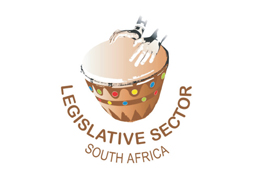
The Speakers Forum held its end-of-year function where the Speaker of the National Assembly, Ms Nosiviwe Mapisa-Nqakula, said the forum needs to consider an array of issues it initiated and still needs to conclude.
“In the overall, we all appreciated that progress has been made and a number of areas that have an impact on the process of establishing the legislative sector as fully functioning and an independent arm of the state. We will receive further reports on the directives given from the previous meetings regarding this work.”
But the impending launch of the South African Parliamentary Institute (SAPI) took centre stage. The Speaker said this is a visionary project that is the culmination of a long consultative process, dedication and hard work.
Speaking on the modalities of the institute, the Deputy Speaker of the National Assembly, Mr Lechesa Tsenoli, maintained that it will not take over the legal and legislative role of parliamentarians, but rather, through collaborations with existing partnerships with Inter-Parliamentary Union and Commonwealth Parliamentary Association, it will enhance the capacity building mechanisms, law-making, public participation, oversight and knowledge system of the sector. This will improve the quality of these functional areas and draw on the experience of others.
SAPI will enhance the sector’s capability to conduct thorough oversight over the integrity of the executive’s supply chain systems. It will also work on harnessing technology to further development its virtual systems capabilities to ensure its infrastructure and data for members are more secured.
The need to coordinate the work of the Parliamentary Communication Services and its Public Relations to create an information and communication portal for updated sector information and programmes for public consumption is one of the immediate and critical stakeholders’ performance areas that it will need to enact, he said.
REPORTS ON PRESIDING OFFICERS’ HANDBOOK, COLLECTIVE BARGAINING, INTERNATIONAL ENGAGEMENTS AND REMUNERATION
The Speakers’ Forum had other urgent issues related to the Presiding Officers’ Hand Book, Collective Bargaining, International Engagement, Remuneration on its agenda. A reference group on the Presiding Officers’ Handbook, which prescribes the benefits and regulates the official support of presiding officers, will be finalised before 1 March 2022.
The ballooning public service wage bill also came under the spot light. Speakers’ Forum members were at pains to explain how difficult it would be to meet the 5% salary increment and R1 500 once-off payment that National Education, Health and Allied Workers’ Union (NEHAWU) is demanding. The forum agreed that negotiations should continue to sensitise NEHAWU to its predicament until an amicable resolution is found.
Reporting on the sector’s international engagements, Mr Tsenoli reiterated that the agenda of the African region is to change the Commonwealth Parliamentary Association (CPA) into a recognisable international organisation with observer status at the United Nations. “This is urgent and politically crucial to effect this change meant to afford CPA a recognisable international status,” he emphasised.
One of the major milestones of the sector was the adoption of its oversight model. An oversight summit has been pencilled for march next year to get insight from local and international expert on oversight to ensure that it serves its purpose of holding the executive accountable to its service delivery commitments, the rule of law and constitutional democracy.
The matter of the remuneration of speakers is still unresolved. In January 2022, the Commission for Remuneration of Public Office Bearers will present its report in January on the reviews and comments received. Members of the Speakers’ Forum asked their reference group on remuneration to brief it on any issues they need to consider during the commission’s presentation.
Abel Mputing
10 December 2021

